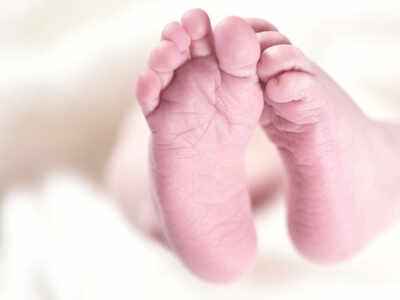
PATNA: Even as the registration of birth is mandatory for the people aspiring to avail the benefits of almost all welfare schemes launched both by central and state governments, Bihar lags far behind in ensuring registration of vital elements under the civil registration system (CRS). Only 3/4th of the births and less than half of the deaths are being registered in the state, says a recent study made by Patna University’s Population Research Centre (PRC) in collaboration with UNICEF.
While the level of registration of births and deaths in the country stands at 84.9% and 79.6% respectively, it is only 73.7% and 37.1% respectively in Bihar, the study indicates.
The study made by Jayanta Kumar Basu of UNICEF and Dilip Kumar, B K Pandey and Ajit Kumar of PRC points out that the levels of registration vary substantially from district to district. For example, in 2018, the level of birth registration ranged from as high as 99.1% in Purnia to as low as 44.2% in East Champaran. Similarly, in case of death, the level of registration varies significantly from 51.8% in Munger to 5.5% in Banka.
According to the study, the need and importance of civil registration, particularly that of birth registration, is well perceived by the community. This is despite the fact that not much effort has been put forward by the district authorities in terms of information, education and communication (IEC) inputs. Hoardings on civil registration were once supplied by the Directorate of Economics and Statistics, but the same are not visible anywhere now. Interaction with various stakeholders as well as the community suggests that since birth registration is a requirement for school enrolment, Aadhaar registration, as well as for availing the benefits from schemes like Mukhyamantri Kanya Utthan Yojana, Janani Suraksha Yojana, Dhan Lakshmi Yojana and Pradhan Mantri Matri Vandana Yojana, the people have now become interested towards registering the birth of their children.
The awareness is, however, much lower in case of death registration. It transpired that only if the dependents of the deceased have some vested interests, they feel the need for death registration. This includes claim from life insurance, inheriting the title for land holding, etc.
Then, there are certain myths and misconceptions associated with birth registration as well. In some communities, there is a custom of not giving the name of the child just after birth. But, furnishing the name of the child is a necessary condition for birth certificate. This is a reason why they are not inclined to have the birth of the child registered within 21 days. This holds true also for home deliveries as well as institutional deliveries from private facilities.
The study suggests that for augmenting the process of registration, the monitoring role of the state, district and sub-district functionaries needs further strengthening with particular focus on quality of data collected and their use in decision making. Despite the fact that the state-wise targets for civil registration are set by the Registrar General of India, the targets set for the district and the sub-district level need to be worked out based on some scientific methodology. Aspects of migration, live births reported by the health management information system, etc may be taken into consideration, the study adds.
PRC joint director Dilip Kumar observes that registration of birth is a fundamental right of every child and is the first step towards establishing his or her legal identity. There is no denial of the fact that the information on vital events (birth and death) is not only essential for socioeconomic planning and development, but also for evaluation and effective implementation of various public schemes and programmes. It assumes more significance in the present context of preparing National Population Register (NPR) and National Register of Citizens (NRC), he adds.
While the level of registration of births and deaths in the country stands at 84.9% and 79.6% respectively, it is only 73.7% and 37.1% respectively in Bihar, the study indicates.
The study made by Jayanta Kumar Basu of UNICEF and Dilip Kumar, B K Pandey and Ajit Kumar of PRC points out that the levels of registration vary substantially from district to district. For example, in 2018, the level of birth registration ranged from as high as 99.1% in Purnia to as low as 44.2% in East Champaran. Similarly, in case of death, the level of registration varies significantly from 51.8% in Munger to 5.5% in Banka.
According to the study, the need and importance of civil registration, particularly that of birth registration, is well perceived by the community. This is despite the fact that not much effort has been put forward by the district authorities in terms of information, education and communication (IEC) inputs. Hoardings on civil registration were once supplied by the Directorate of Economics and Statistics, but the same are not visible anywhere now. Interaction with various stakeholders as well as the community suggests that since birth registration is a requirement for school enrolment, Aadhaar registration, as well as for availing the benefits from schemes like Mukhyamantri Kanya Utthan Yojana, Janani Suraksha Yojana, Dhan Lakshmi Yojana and Pradhan Mantri Matri Vandana Yojana, the people have now become interested towards registering the birth of their children.
The awareness is, however, much lower in case of death registration. It transpired that only if the dependents of the deceased have some vested interests, they feel the need for death registration. This includes claim from life insurance, inheriting the title for land holding, etc.
Then, there are certain myths and misconceptions associated with birth registration as well. In some communities, there is a custom of not giving the name of the child just after birth. But, furnishing the name of the child is a necessary condition for birth certificate. This is a reason why they are not inclined to have the birth of the child registered within 21 days. This holds true also for home deliveries as well as institutional deliveries from private facilities.
The study suggests that for augmenting the process of registration, the monitoring role of the state, district and sub-district functionaries needs further strengthening with particular focus on quality of data collected and their use in decision making. Despite the fact that the state-wise targets for civil registration are set by the Registrar General of India, the targets set for the district and the sub-district level need to be worked out based on some scientific methodology. Aspects of migration, live births reported by the health management information system, etc may be taken into consideration, the study adds.
PRC joint director Dilip Kumar observes that registration of birth is a fundamental right of every child and is the first step towards establishing his or her legal identity. There is no denial of the fact that the information on vital events (birth and death) is not only essential for socioeconomic planning and development, but also for evaluation and effective implementation of various public schemes and programmes. It assumes more significance in the present context of preparing National Population Register (NPR) and National Register of Citizens (NRC), he adds.
Get the app









